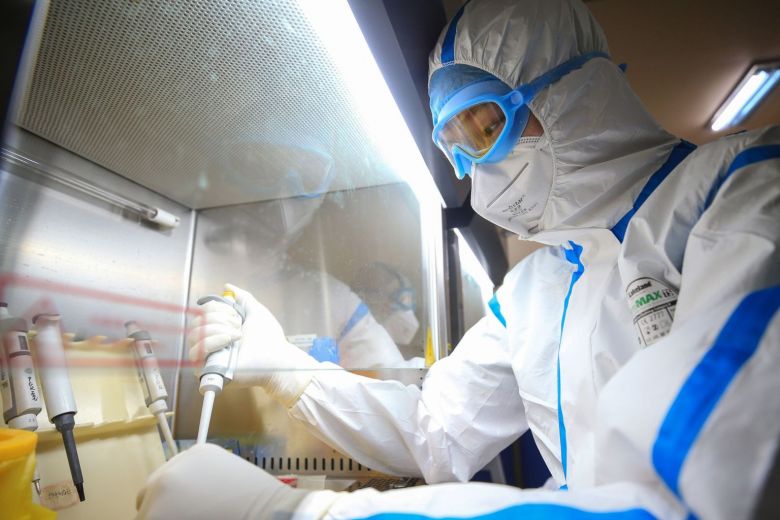In recent months the hypothesis has been branded a conspiracy theory. Today, some intelligence experts admit they are seriously considering the possibility that the Covid-19 coronavirus pandemic may have arisen from an accident in Chinese research laboratories.
“After extensive research, scientists in the US and elsewhere have determined that the new strain of the coronavirus discovered in China in December is of natural origin, but they are seriously considering that the pathway to human infection may have begun in Chinese laboratories in Wuhan ”, he writes Jenna McLaughlin by Yahoo News.
Little transparency from Beijing
One reason for the suspicion is the lack of information from China. Beijing's quick denials of involvement and the decision to immediately identify the Wuhan seafood market as the source did not convince some US intelligence officials.
The Chinese government did not respond to multiple requests for comment made through its foreign ministry and its embassy in the United States.
In fact, some of the very first cases of COVID-19 they were not connected to the market and there are a number of major research institutes in Wuhan where infectious diseases are studied.
These Chinese labs include the Wuhan National Biosafety Lab, the first publicly recognized with the highest biosecurity standards. The Wuhan branch of the CDC, Chinese Centers for Disease Control and Prevention. Finally, the Wuhan Institute of Virology, home to one of the world's leading research groups on bat coronaviruses, where scientists have studied thousands of samples.
Wuhan Institute of Virology
It is this center in particular, the Wuhan Institute of Virology, that is considered crucial. It collaborates with researchers and institutions around the world, including the US National Institutes of Health, and is a key site for the Global Virome Project, a global initiative focused on preventing future pandemics.
Secondo David Relman, a microbiologist at Stanford University, "it's possible" that researchers may have collected a virus sample from a bat and researched it within the laboratory.
Even in the UK they are suspicious
The British government is also considering the possibility that the new coronavirus was accidentally leaked from a laboratory in the Chinese city of Wuhan during research on the virus. A report of the newspaper Mail on Sunday.
Most experts believe the virus outbreak began with animals transmitting the disease to humans in or near a market in the Chinese city of Wuhan, where live animals were sold.
The Mail on Sunday report, however, says that while officials in Prime Minister Boris Johnson's government believe this is still the most likely explanation, it is "no longer a given" that a leak from a nearby laboratory actually caused the outbreak .
“There is one vision alternative credible to the zoonotic theory based on the nature of the virus". A member of Cobra, the emergency committee of senior British government officials, told the English newspaper. “Maybe it's no coincidence that there is that laboratory in Wuhan.”
Senior British poppies also focus on two science laboratories in Wuhan. There it is believed that scientists were carrying out tests on viruses: the Institute of Virology and the Wuhan Disease Control Center.
Both are 16 kilometers from the wet market, the live animal market where the outbreak is believed to have started late last year.
“Collection, culture, isolation or infection of animals at BSL-2 [moderate biosafety level] with viruses of these characteristics would pose an infectious risk. A substantial risk. Both of infection for a laboratory worker and among laboratory workers". To say it è richard ebright, a professor at Rutgers University's Waksman Institute of Microbiology.
For Elbright the evidence available “they allow us to exclude the creation of the virus in the laboratory. However, they do not allow us to exclude an accident in the Chinese laboratories."
In summary?
Although the virus is “natural,” it may have escaped due to an error in the laboratory.
The Johnson government has reportedly started questioning the veracity of China's claims regarding the coronavirus.
On March 29, the famous British politician Michael Gove said to the BBC to be skeptical of China's number of official viruses.
“The first case of coronavirus in China was established in December last year. But some of the reports coming out of China have been unclear about the extent, the nature, the infectivity."he said.
A relationship of the British Parliament's Foreign Affairs Committee last week accused the Chinese government. The Celestial Empire would spread misinformation about the spread of the virus. “Misinformation about COVID-19 has already cost many lives,” it reads. “It is essential that the government gives clear and transparent messages to refute disinformation spread by foreign powers.”
These accusations, half-heartedly but not too loudly, could be instrumental. They could be the result of the US and English attempts to divert attention from criticism of their health systems in serious difficulty.
Certainly, however, they are paired with even more direct accusations and of opposite sign moved by Chinese politicians (such as Zhao Lijiang, a government representative).
They complete a rather turbulent picture with President Trump's accusations that the WHO is pro-China.


